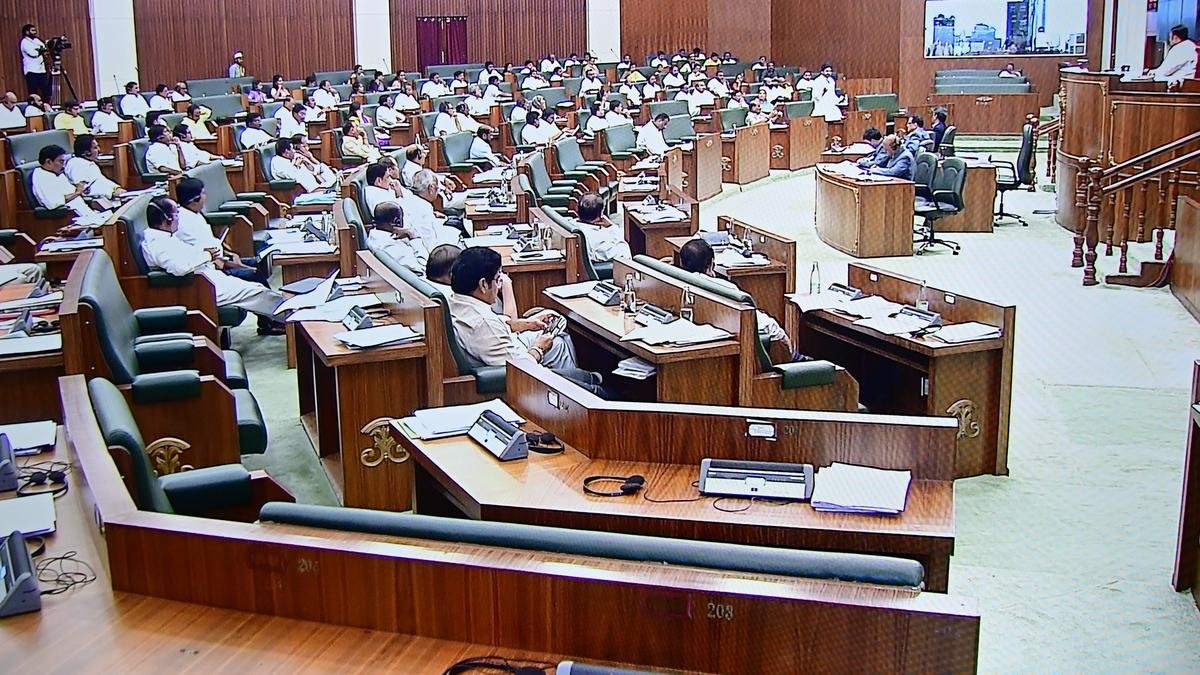In a move that has sparked debates across labor unions, environmental groups, and industry stakeholders, the State Legislative Assembly on Thursday passed two significant Bills. The first increases the permissible daily working hours for workmen, while the second reduces the green tax imposed on heavy commercial vehicles (HCVs). While the government has defended these decisions as “pro-growth measures” aimed at boosting industrial productivity and easing the financial burden on transporters, critics warn of potential consequences for workers’ welfare and environmental sustainability.
Bill on Increasing Daily Working Hours
The most contentious of the two Bills is the amendment to the labor laws, allowing industries to increase daily working hours for workmen. The legislation permits up to 12 working hours per day, compared to the earlier standard of 8 hours. However, the total working hours per week are capped at 72 hours, ensuring that the weekly maximum is not violated.
Government officials argued that this move was necessary to align with global industry standards and provide more flexibility to companies working on tight deadlines or export-oriented production schedules. The Labor Minister noted that the law still mandates overtime pay for work beyond 8 hours and includes provisions for adequate rest intervals.
Reactions from Labor Unions
Labor unions, however, expressed strong opposition. Union leaders called the move a “rollback of workers’ rights” and warned that extended daily hours could lead to fatigue, health issues, and workplace accidents. They pointed out that many workers are already under physical and mental stress, and increasing the length of shifts could worsen conditions, particularly in hazardous industries such as construction and manufacturing.
Union representatives have announced plans for protests and legal challenges, arguing that the government has prioritized corporate interests over human welfare.
Bill on Reducing Green Tax for Heavy Commercial Vehicles
The second major legislation passed was the reduction of green tax levied on heavy commercial vehicles (HCVs). Previously, HCVs were subject to a steep green tax in an effort to curb pollution and incentivize the use of cleaner technologies. The new Bill slashes this tax significantly, with the government justifying the decision as a relief measure for the transport sector, which has been grappling with high fuel costs and operational expenses.
Government’s Justification
Transport officials explained that the green tax reduction will bring down logistics costs, making goods movement cheaper and boosting economic activity. The government has promised to simultaneously step up its investments in public transport electrification, clean fuel adoption, and emission-control technologies to ensure that environmental goals are not compromised.
Environmental Concerns
Environmental activists, however, raised alarm over the move. They warned that reducing green tax could encourage prolonged use of older, polluting vehicles and slow down the adoption of eco-friendly alternatives. Experts highlighted that HCVs contribute disproportionately to vehicular pollution, and weakening financial deterrents may undermine the state’s fight against air pollution and climate change commitments.
Industry Response
Industrial bodies and trade associations welcomed both Bills, calling them “business-friendly” and essential for enhancing competitiveness. Manufacturers argued that longer shifts would help meet export orders efficiently, while transporters hailed the green tax reduction as a timely relief amid rising operational costs.
Political Debate in the Assembly
The Assembly witnessed heated debates before the Bills were passed. Opposition parties accused the ruling government of bowing to corporate lobbying and compromising on labor rights and environmental commitments. They demanded that both Bills be sent to a select committee for further scrutiny, but the motions were defeated by the ruling party’s majority.
The Chief Minister defended the decisions, stating that the measures strike a balance between economic growth, labor welfare, and environmental sustainability. He assured that monitoring mechanisms would be put in place to prevent misuse of the extended working hours and to encourage gradual replacement of older vehicles despite the tax cut.
Way Forward
While the Bills have now become law, their implementation will be closely watched in the coming months. Labor unions are preparing to challenge the working hours amendment in court, while environmental groups are planning campaigns to demand stricter pollution control measures.
The government, on its part, has promised to introduce safety audits for industries employing longer shifts and to roll out incentives for electric and hybrid heavy vehicles to offset the green tax reduction.
Conclusion
The passage of these two Bills marks a turning point in the state’s approach to balancing economic growth with social and environmental responsibility. Whether these measures succeed in boosting productivity and lowering logistics costs without undermining worker welfare and environmental goals remains to be seen. For now, the debate continues between the government, industry, labor, and environmental stakeholders—each with a different vision of what constitutes progress.







